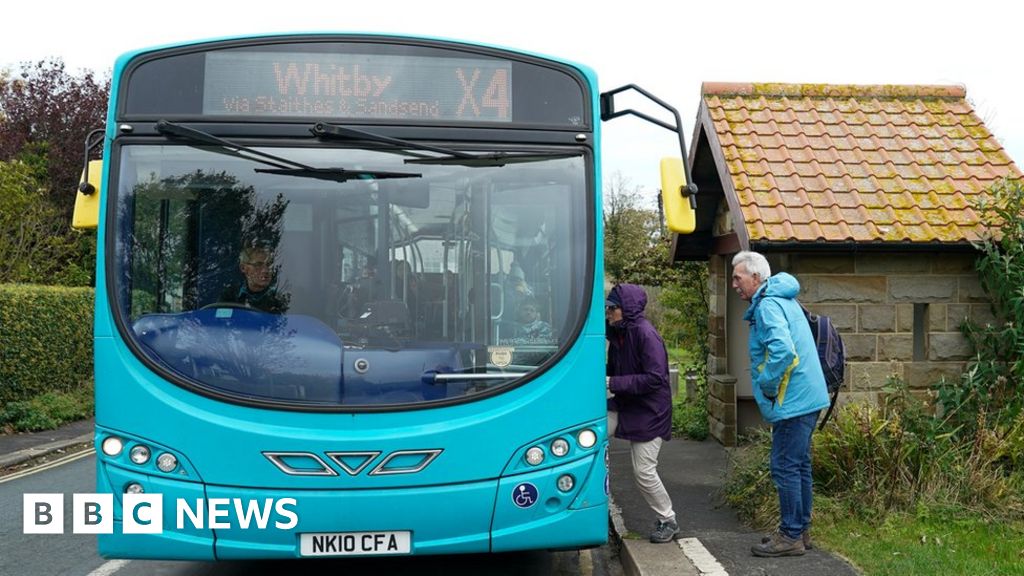More Bus Journeys Taken Since £2 Fare Cap, Says Watchdog

More people are using bus services since the introduction of a £2 fare cap, a survey by a transport watchdog suggests.
Transport Focus surveyed more than 1,000 people and more than one in 10 said they were using the bus to travel more.
The cap was introduced as a cost of living measure and to help bus firms bring passenger numbers back to pre-pandemic levels.
The cap is due to expire in June.
It was introduced in January and was originally due to expire in March, but was extended as bus firms warned that hundreds of services across England could be cut.
The fare cap is voluntary and applies to services outside of London. Manchester, Liverpool and West Yorkshire had already introduced £2 caps as part of longer-term schemes, which began in 2022.
Transport Focus spoke to 1,111 people in March, all aged under 65 and living outside London.
Some 11% of respondents said they were using the bus to travel more - up from 7% in January.
Awareness of the scheme has also increased, the watchdog said, with three quarters of regular bus users aware of the £2 fare cap. Respondents showed the highest awareness in the North East, Yorkshire and Humberside and the north West of England.
Awareness of the scheme was lowest in the West Midlands, Transport Focus said.
The majority of respondents to the survey thought the cap was helpful in battling rising costs as inflation - the rate at which prices rise - hits near record levels.
David Sidebottom, director of Transport Focus, said the bus fare was having a "big impact", as cheaper fares were "vital in winning passengers back".
He added that the cap was "providing a lifeline for bus routes up and down the country".
One passenger told Transport Focus: "Before it was about £4 for a single journey and £7 for a return which is so expensive. £2 is a great price and should be made permanent,"
The Office for National Statistics had said the £2 fare cap was a contributing factor in inflation slowing down in January.
From Chip War To Cloud War: The Next Frontier In Global Tech Competition
The global chip war, characterized by intense competition among nations and corporations for supremacy in semiconductor ... Read more
The High Stakes Of Tech Regulation: Security Risks And Market Dynamics
The influence of tech giants in the global economy continues to grow, raising crucial questions about how to balance sec... Read more
The Tyranny Of Instagram Interiors: Why It's Time To Break Free From Algorithm-Driven Aesthetics
Instagram has become a dominant force in shaping interior design trends, offering a seemingly endless stream of inspirat... Read more
The Data Crunch In AI: Strategies For Sustainability
Exploring solutions to the imminent exhaustion of internet data for AI training.As the artificial intelligence (AI) indu... Read more
Google Abandons Four-Year Effort To Remove Cookies From Chrome Browser
After four years of dedicated effort, Google has decided to abandon its plan to remove third-party cookies from its Chro... Read more
LinkedIn Embraces AI And Gamification To Drive User Engagement And Revenue
In an effort to tackle slowing revenue growth and enhance user engagement, LinkedIn is turning to artificial intelligenc... Read more

